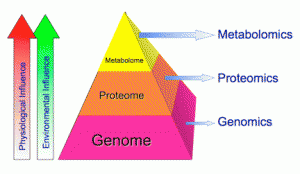Precision Medicine Beyond the Genome
Today, doctors can tailor a drug therapy to your unique genetic profile, giving you the full benefits of a drug while reducing unwanted side effects — all in harmony with the blueprints of your biology.
Now, through a new $30,000 grant from the J.R. & Inez Jay Fund, researchers at the University of Kansas and Children’s Mercy Hospital in Kansas City are investigating how to tailor drug therapies using exosomes — nanoscale sacs full of biomarkers like lipids, proteins and nucleic acids found in bodily fluids — that can be used to achieve a noninvasive “liquid biopsy.”
“Beyond genetics, there are layers of complexities during development from childhood to adolescence to adulthood.”
–Michael Wang, University of Kansas
The new exosome-based technology could be especially useful in developing personalized medical treatments for children and teens, Wang said.
For the full story visit the University of Kansas website here.

Visit the University of Kansas










Recent Comments